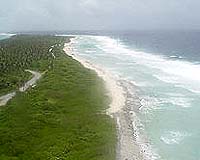| . |  |
. |
Chicago (UPI) Jul 13, 2009 U.S. medical scientists say they have grown immature human egg cells to near maturity in a laboratory. The Northwestern University Feinberg School of Medicine researchers said their achievement marks the first time anyone has successfully grown a woman's immature egg cells, contained in a tiny sac called a follicle, to a healthy and nearly mature egg in the laboratory. When an egg is fully mature, it is ready to be fertilized. The scientists said their research, if successful in the next steps, might eventually provide a new fertility option for women whose cancer treatments destroy their ability to reproduce. "By being able to take an immature ovarian follicle and grow it to produce a good quality egg, we're closer to that holy grail, which is to get an egg directly from ovarian tissue that can be fertilized for a cancer patient," said Teresa Woodruff, chief of fertility preservation at the Feinberg School. "This represents the basic science breakthrough necessary to better accomplish our goals of fertility preservation in cancer patients in the future." Woodruff, working with Professor Lonnie Shea and colleagues, reports the research in the July 14 issue of the journal Human Reproduction. Share This Article With Planet Earth
Related Links All About Human Beings and How We Got To Be Here
 Marshall islanders move to US as living costs soar
Marshall islanders move to US as living costs soarMajuro (AFP) July 1, 2009 The migration of Marshall islanders from the tiny nation in the Pacific to the United States has risen to an eight-year high due to the impact of soaring living costs, officials said. A total of 1,503 people left the Marshall Islands for the United States in 2008, nearly triple the number in 2007, according to US Department of Transportation statistics. "The dramatic increases in fuel ... read more |
|
| The content herein, unless otherwise known to be public domain, are Copyright 1995-2009 - SpaceDaily. AFP and UPI Wire Stories are copyright Agence France-Presse and United Press International. ESA Portal Reports are copyright European Space Agency. All NASA sourced material is public domain. Additional copyrights may apply in whole or part to other bona fide parties. Advertising does not imply endorsement,agreement or approval of any opinions, statements or information provided by SpaceDaily on any Web page published or hosted by SpaceDaily. Privacy Statement |